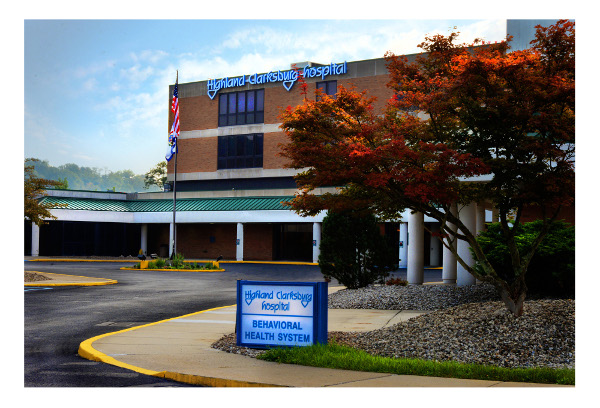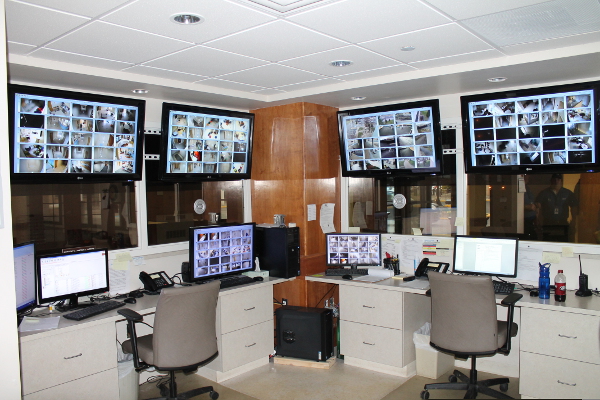Case Study - Highland Hospital
Galaxy Control Systems Protects Patients and Staff at Psychiatric Hospital

Customer
Highland-Clarksburg Hospital is a 150-bed behavioral psychiatric center located in Clarksburg, WV. Its patients include forensics patients (deemed unfit to stand trial and/or non-restorable), dual-diagnosis substance abuse patients, children and adolescents and intellectually challenged individuals. The facility occupies a recently renovated 415,000-squarefoot former critical care hospital building, donated in 2010 by United Hospital Center after it moved to a new facility.
Challenge
In addition to structural upgrades to the building during renovations, Highland-Clarksburg Hospital also required a state-of-the-art security system that would protect the hospital’s patients and staff as well as the surrounding community. The fast-tracked security system was to include access control, patient tracking, overhead paging, fire alarm upgrades and HD video surveillance systems, and have integration capabilities.
Along with securing the exterior doors at Highland-Clarksburg Hospital, the plan called for interior doors on three floors that housed patients to be secured as well. Because of the nature of the facility, it was determined that a two-step process was needed to help ensure security and employee safety. Extra security measures were also needed for managed elevator usage – a challenge exacerbated by the fact that elevator manufacturers typically do not focus on physical security concerns.
Solution
Appalachian Signals and Products Inc. (ASAP) of Winfield, WV was tapped to perform the installation and their go-to choice for the IP access control system was System Galaxy. ASAP had used Galaxy’s systems since 2002, and had used the company’s products exclusively for more than nine years. The high performance delivered by Galaxy systems, along with their low maintenance requirements and integration capabilities, were the primary reasons for ASAP loyalty as a Galaxy customer.
To meet the requirement for a two-step security procedure on interior doors, the Galaxy system was supplemented with an additional layer of protection requiring users to input a five-digit PIN to identify who is accessing what areas of the facility and to ensure adherence to established hospital policies and procedures. With the new system, all interior doors in the patient care areas are locked and can only be opened with the swipe of the badge and the inputting of the unique pin number by the staff. This additional layer of security means that even if a badge is misplaced or stolen, it still can’t be used to move through the facility as the person would still need the PIN.
The integrated Galaxy system is also used for all of the elevators. A card swipe and pin is required to call an elevator to a floor and once inside the elevator, a card swipe and PIN is again required to move between floors. To resolve the issue of managed elevator usage that allocated elevator cars to certain staff members at certain times of the day, ASAP installed card readers strategically and took advantage of the integration between the access control and patient tracking systems to protect the card readers with stringent access control rights. If a hospital staff member is escorting a high-risk patient, elevator doors cannot be unlocked without setting off an alarm unless both the patient-tracking reader and access control badge are married.
The integrated Galaxy access control system and patient-tracking system was also installed in the higher-security areas to allow entrance to another door or an elevator. Unoccupied areas of the hospital also have door mechanisms to lock out unauthorized individuals. In total, ASAP installed 208 readers, 24 power supplies and 20 Galaxy controllers throughout the facility.
“The IP protocol of the Galaxy System readers has worked out well, and we’ve had very few issues on-site to date,” says Dennis Carney, lead integrator for ASAP. “The structure, the equipment and the ability to keep it running without a whole lot of hands-on work were the other reasons we chose Galaxy’s products.”
Mike Casdorph, President and CEO of Highland-Clarksburg Hospital who directed and oversaw construction for the project, added, “The project was fast tracked as we wanted to get portions of the facility open and ready to accept patients. I can’t say enough about the Contractors and ASAP as they all went above and beyond to meet our schedules. I am very impressed with the Galaxy system and the installation and service provided by ASAP. They are always available to assist if we have a problem."

